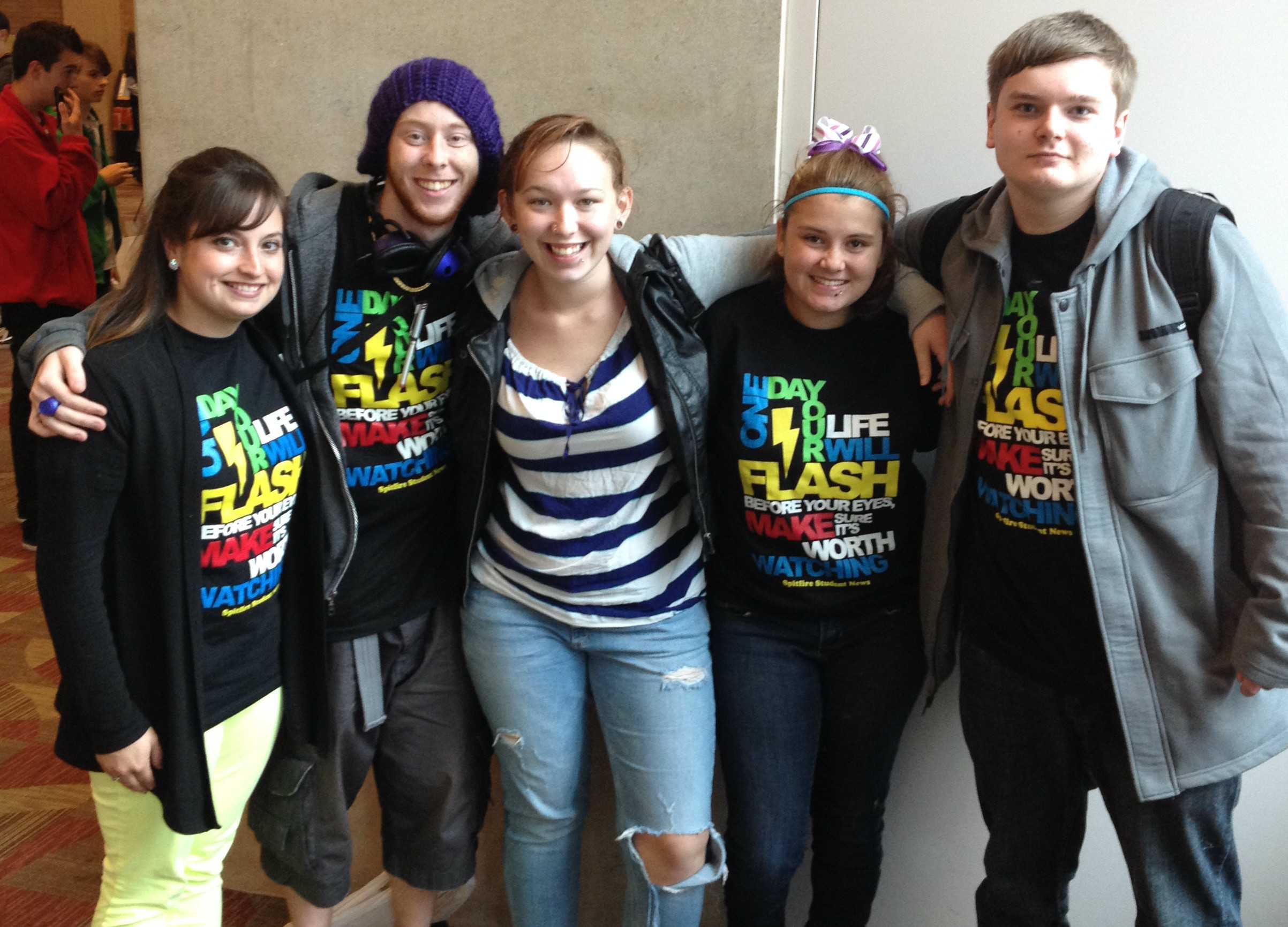Breaking Down Stereotypes at PCEC
The NL visits PCEC for a few days and finds out the stereotypes don’t fit.
Caitlyn Roberts (12) is a student at Portage Community High School; however, she is not a complete “stoner”, a teen mother, or an expellee from a violent past. Caitlyn attended Mattawan High School before a car accident killed her sister. “After she died, I missed a month of school, and it was hard for me to focus on my school work,” said Roberts. When Roberts did go back to school, she was told that she would not be able to catch up and had to drop out. She then enrolled at Portage Community High School at the beginning of her junior year and loves it there because everyone understands her and what she has been through. “It has changed me for the better. I met a lot of people that have messed up, and the school helps people get back on their feet,” said Roberts.
When envisioning a regular high school, it is expected to imagine the typical cliques-preps, theater kids, book nerds, jocks, stoners, and the kids in between. It is also normal to envision many classrooms filled with gossiping students, sometimes on multiple floors. Now envision the opposite of what is expected: the students are all friends and act more like a family, there is virtually no drama and barely any fighting, and there is no possible way to get lost. The whole school is actually one hallway and a couple of trailers. Portage Northern is a great example of what we would call the “regular school” while Portage Community High School, better known as PCEC, is what most of the city of Portage would consider an example of the “opposite school”. However, what people do not realize is that being “opposite” is not a bad thing, and that PCEC is not what they imagine.
Portage Community High School is often thought of as the school that all of the “troubled” students attend. “ ,” said Mrs. Thorpe, who teaches English, History, and Journalism. The students that go to PCEC are not any different than the students that go to the other Portage high schools. The community tends to stereotype the students as the delinquents, teen mothers, and high school dropouts of Portage. “The stereotypes given to the students here really bother me because most of the kids that go here are not like that at all. People need to understand the different situations,” said Roberts.
Furthermore, The teachers at Portage Community High School also get a bad reputation. The community tends to think that they teach there as a last chance job. “That is not true at all,” said Thorpe, “We have some of the highest trained staff in the district.” The staff sticks together just like the student body, and the school seems like a family that fights whatever criticism comes their way. “We work really hard to overcome the stereotypes. I think most of the teachers have come to realize how much we do, but community-wise, we are trying to improve our image,” said History teacher Mrs. Rowlson.
The high school also boasts several activities, programs, and benefits that many do not know about. PCEC has held seven state championships in co-ed volleyball and also includes co-ed softball and robotics. Block scheduling has also benefitted students at the high school. With only four 90-minute classes a day, students and teachers are able to learn more effectively. “I get more help from teachers and never have homework!” said student Ryan Stannard (12). There are also smaller class sizes with only about fifteen to twenty people in each class. “The bond with my teachers are closer than with teachers at my other school,” said Mackenzie Kovach (12).
“I have had plenty of opportunities to leave, but Portage Community High School is a community, not a school,” said Kevin Forker (12). This community helps students like Roberts and many others to get back on their feet when nothing else will help. Portage Community High School, better known as Portage Community Education Center puts the Community in its name.




